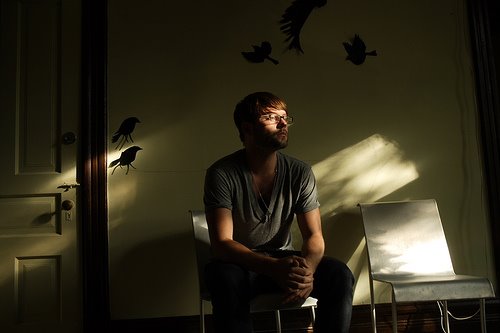In this article which I arrived at via iheartphotograph, I read some interesting responses to the Brooklyn Museum´s show, click!. Basically the premise was that anyone could submit work and anyone could vote on what the end product would look like.
Most of the responses seemed optimistic, that it was an interesting experiment but Jennifer Blessing, curator of photography at the Guggenheim thinks that there was nothing to learn. I think that it´s a valid question to ask, when curators and museums are typically thought of places to learn and that the idea of paring down the available works out there to the most interesting and compelling pieces is extremely important. But to answer what is to be learned, I would say that experimentation is essential to learning. Art has always naturally pushed its own boundaries and definition of what is acceptable, successful and interesting.
This show maybe is a good contrast to a professionally curated show because it talks about democracy and how that relates to a subjective thing such as photography as art. Seeing how the public reacts when given the chance, what their taste is like is interesting to me. Does exclusivity in art work because it keeps the same players on top, or does it really secure that only quality work is in front of the public?
In an ideal world, the best work would naturally rise to the forefront, and it normally does. But to call a chance for unseen work, organized by unknown people as a mistake or as a non learning experience is short sighted.
In the end, I don´t care if the good work gets seen because mom and dad could afford a Yale education or because some artist puts it up on flickr and creates a forum. If the work is of high quality, that shouldn´t matter.
links
- a photo editor
- alec soth in all his splendor
- amy stein blog is nice for looking at animals and stranded people by the road
- caleb condit photography is getting a new board of directors
- charles shotwell photographer
- conscientious has music fridays...TGIF
- ffffound.com makes me lose hours of my day
- humble arts foundation
- iheartphotograph blog
- Juco photo
- magnum agency has a cool blog because alec soth is BACK!
- Martin Denker
- photoshop disasters cracks me up
- scott polach takes cool pictures in zoos
- stephanie mcniel is fun when she wears fur
- subjectify is now on my radar
- sye williams photographer
- sze tsung leong photographer
- too much chocolate
- we can shoot too Blog
- young photographers united
About Me
Friday, July 25, 2008
Subscribe to:
Post Comments (Atom)




No comments:
Post a Comment